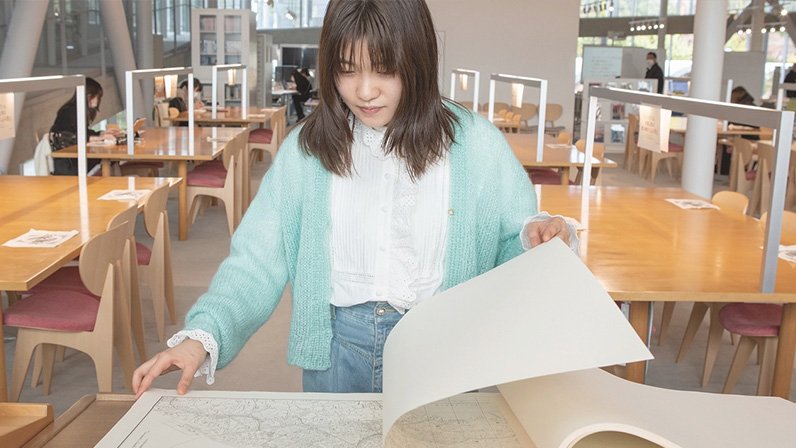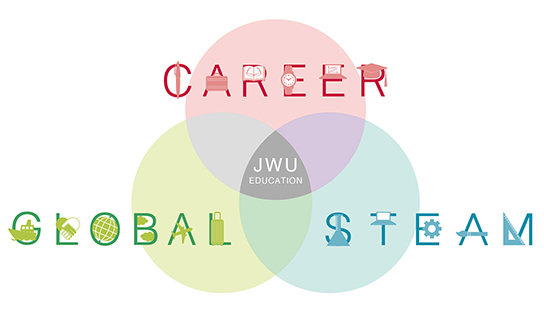To become a person who can solve diversifying social issues and create a "cohesive society" where everyone can live in their own way.
Carrying on the tradition as a pioneer in social welfare education in Asia, we provide a rich and deep education. A wide range of specialized subjects are offered to develop human resources who can acquire basic skills that can be applied in various areas of society and create a "cohesive society" with flexible thinking and problem-solving abilities. Students are encouraged to create a new welfare system and realize a world where everyone can live as they wish.
Features of the Department
Fostering a volition and deep intellectual ability to achieve an inclusive society
Students learn based on the three pillars of “awareness of social welfare problems,” “systematic understanding of laws, systems and policies,” and “specialized techniques and methods for solving problems,” thereby fostering an intellectual ability to achieve an inclusive society in which everybody can live as they are. In the third and fourth years, all students belong to a graduation study seminar with a quota of around 10 people, deepening their understanding of social welfare through graduation research.
Learning about “now” through classes and practical sessions, and creating a new welfare
During their first year in the social problems course, students gain an understanding of the various contemporary social problems, and through basic seminars with small numbers of students, they equip themselves with the abilities aimed at specialized study from their second year and onwards. It is possible to attain the eligibility to take the certified social worker examination by completing the designated course. The practical sessions are conducted in Community General Support Centers, hospitals, foster homes, Councils of Social Welfare and disabled person support institutions.
Dramatic rise in opportunities to apply social welfare skills
Human resources who can solve social problems are needed in all sorts of settings. In addition to social welfare occupations, in recent years post-graduation possibilities are rapidly expanding into the judiciary and offenders’ rehabilitation, school education, NPOs, general corporations and more. Social welfare and careers are therefore studied right from the first year.
Four years of study at the Department of Social Welfare
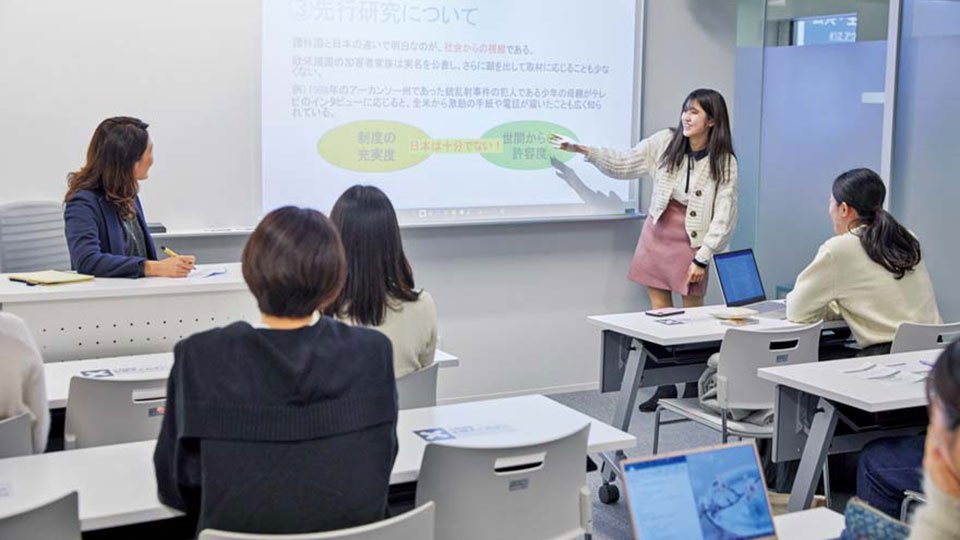
First year: Experiencing a wide range of perspectives on social welfare
Through the introductory subjects and common subjects, students will experience a wide range of perspectives unique to social welfare and determine their own areas of interest.
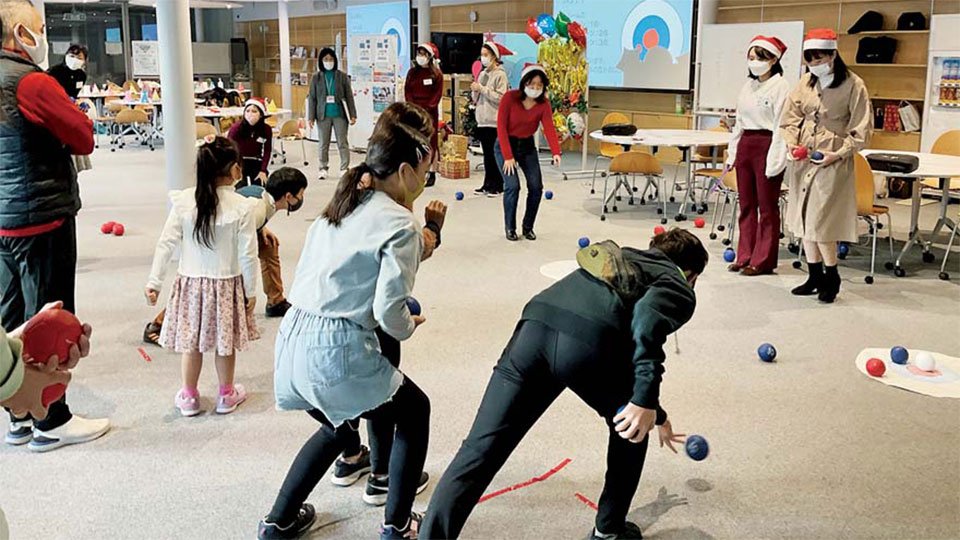
Second year: Developing professional competencies through systematic study
Students will begin a systematic study to actively deepen their own interests in specialized subjects.
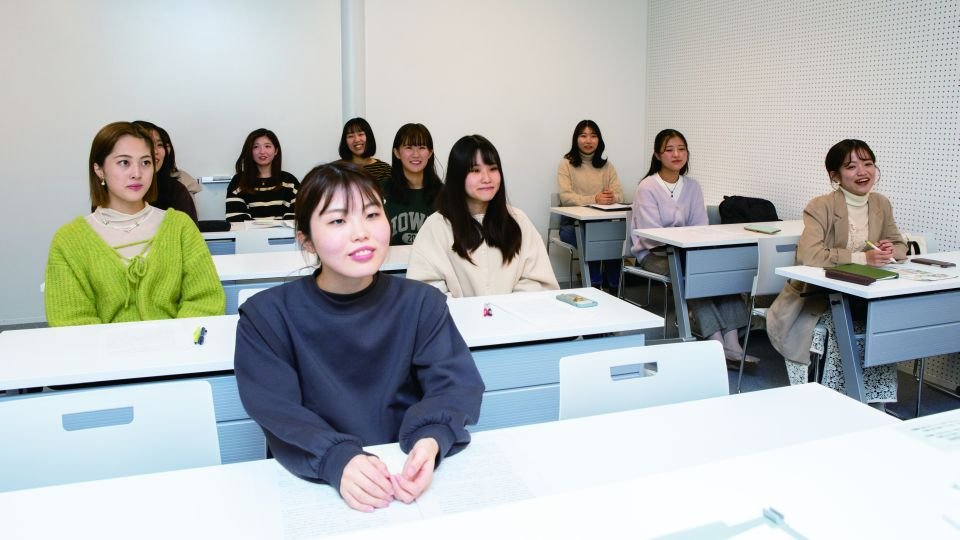
Third year: Specialized study in a graduation study seminar to deepen their own themes
A small-group graduation study seminar will start. Students will set their own themes and explore problem-solving independently with flexible thinking.
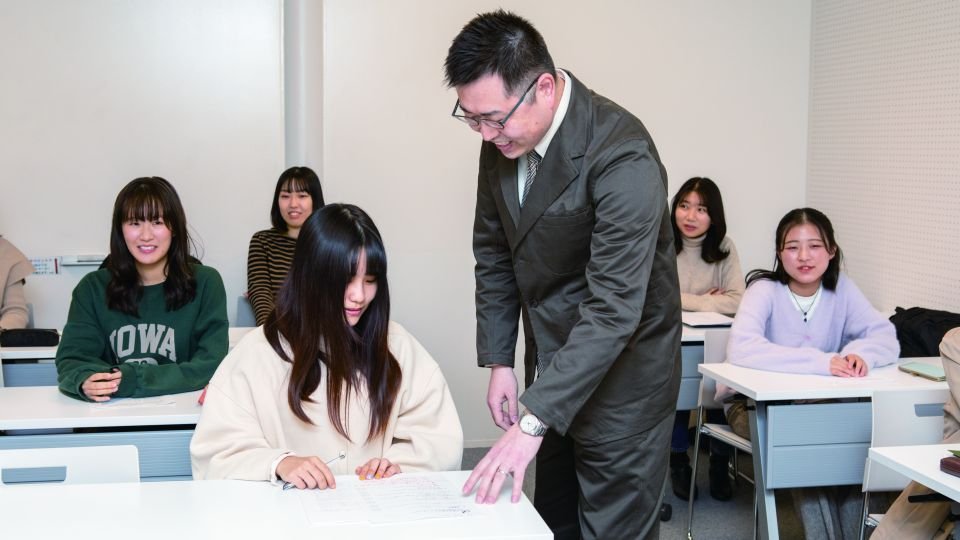
Fourth year: Graduation research―the culmination of four years of study
Students will conduct graduation research based on the results of the four years of study. Each year, all graduation thesis authors give oral or poster presentations.
Class introduction
Social Welfare Seminar 1
Learn about the various difficulties of life in contemporary society and the possibilities of social work
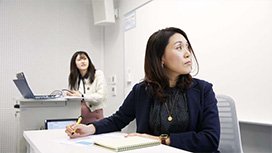
Lecturer
Social welfare (mental health and welfare)
In this Department, small-group seminars begin in the third year. In the "Social Welfare Seminar I" which is led by Hikitsuchi, students work on the theme of various difficulties of life in contemporary society and the possibilities of social work. In the first semester, students will find common themes of interest and awareness of issues and conduct joint research. In the second semester, students will work with members of the Drag Addiction Rehabilitation Center (DARC; a private rehabilitation support center run by former drug addicts) to deepen their understanding of drug addiction, and to think about what we can do to help more people understand drug addiction and rehabilitation, and to communicate our proposals. Through these efforts, this seminar provides students with an opportunity to become aware of issues facing society and learn what can be done to solve them, both from a research and practical aspect.
In this seminar, I always try to provide an environment and opportunities for students to fulfill their potential and abilities and enjoy learning. Therefore, classes are designed to encourage students to learn independently from each other rather than from the faculty member.
Faculty member introduction
Faculty members with a wide range of specialties provide education.

